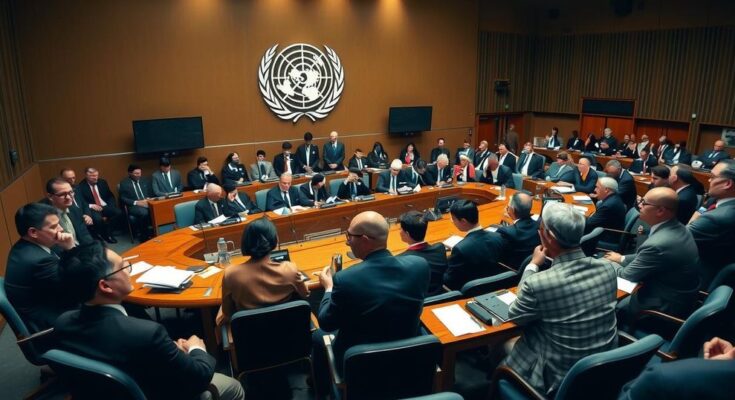More than 1,700 fossil fuel lobbyists attended the UN climate negotiations in Baku, Azerbaijan, significantly outnumbering delegates from vulnerable nations. This has raised concerns about the influence of these lobbyists on climate policy discussions, with advocacy groups demanding their exclusion from negotiations.
At the ongoing United Nations climate negotiations in Baku, Azerbaijan, an alarming tally reveals the presence of at least 1,773 lobbyists representing fossil fuel interests. This figure comes from a coalition of climate advocacy groups who have raised concerns regarding the potential influence of these corporate representatives on climate policy discussions. Kathy Mulvey, a campaigner at the Union of Concerned Scientists, remarked, “Fossil fuel corporations and their surrogates shouldn’t have a seat at the negotiating table where climate policy is being made — allowing them that access is like setting the cat loose among the pigeons.” The participation of fossil fuel lobbyists is particularly concerning as they outnumber delegates from all countries except Turkey, Brazil, and Azerbaijan. Notably, these lobbyists, whose presence totals 1,773, represent a significantly larger contingent than the 1,033 delegates from the ten nations deemed most vulnerable to climate change, as assessed by experts at Notre Dame University. ExxonMobil’s delegates alone equal those sent by Guyana, a nation that is facing immediate threats from rising sea levels. Kathy Mulvey further stated, “Corporations such as ExxonMobil, which have engaged in a decades-long campaign to deceive the public and policymakers and block or delay climate action, have repeatedly shown that they can’t be trusted as good-faith players in climate policymaking.”
The involvement of fossil fuel lobbyists in climate negotiations raises fundamental questions about the integrity of climate policy development. Climate negotiations are designed to forge agreements that mitigate the impacts of climate change, which disproportionately affects vulnerable populations across the globe. However, the disproportionate representation of fossil fuel interests indicates potential conflicts of interest, undermining the very goals of these negotiations and raising ethical concerns about the crafting of policies meant to protect the environment and future generations.
In summary, the significant number of fossil fuel lobbyists participating in UN climate negotiations—significantly outnumbering delegates from vulnerable nations—highlights the pressing need for transparency and integrity in climate policymaking. The presence of corporate representatives from the fossil fuel industry at such critical discussions poses serious ethical dilemmas, jeopardizing meaningful progress in the battle against climate change. The urgent calls from advocacy groups like the Union of Concerned Scientists underscore the importance of prioritizing the voices of those most affected by climate change rather than corporate interests that have a history of delaying action.
Original Source: e360.yale.edu




